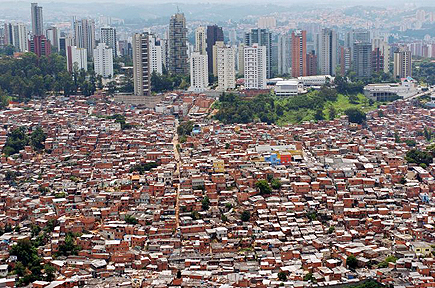São Paulo has an urban population of around 12 million people, including the surrounding metropolitan area. The total population reaches around 20 million.
Around a third of São Paulo’s urban population live in slum-like conditions.
The majority of people who live in these favelas or slums reside there by choice and so the Government focus has shifted in recent years to improvement of conditions. This contrasts with their previous stance of looking to remove favelas. As of 2018, almost all favelas in the urban area of the city have access to clean water and electricity.
A São Paulo Paulo resident, told Buzz: “In the favelas we have Bolsa-familia (family grant) which the Government give you if you are poor, but it is nowhere near enough to support people.
“As you walk through the favelas you just see people in extreme poverty, living with only the basics.
“The Government have given water and electricity to the favelas but they aren’t doing enough. There have been protests about the transparency of funding for the favelas and people are just scraping by. I live in a class A neighbourhood but there is such a discrepancy in wealth that my house is not class A.”
According to a study done in 2000, half of the state’s population earned just 15% of the total income of the state- proving the the polarisation of class in the city. The geographical make-up of the state means it is extremely common for people in poverty to be living in close proximity to those more fortunate.
The issue of poverty is not as surprising when other factors are considered. According to the UN human development record, Brazil has a 65.7% skilled labour force compared to 84.4% for the UK, this means less people are able to earn higher paying jobs which results in more poverty.
Whilst the large poverty rate in São Paulo is concerning, there are signs of improvement with government initiatives working to modernise living conditions in the more deprived area of the city.


 The Impact of Climate Change on Bangladesh
The Impact of Climate Change on Bangladesh